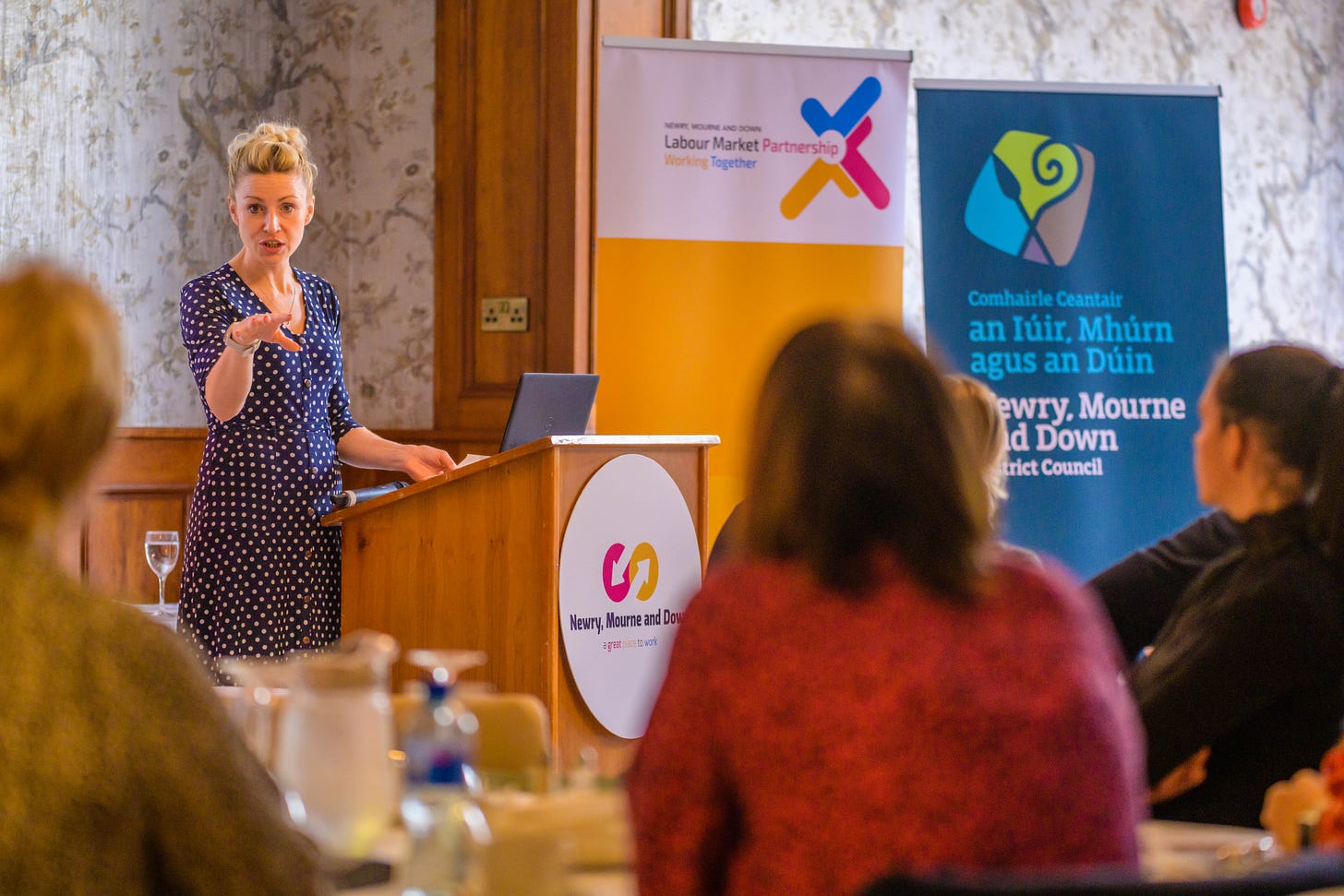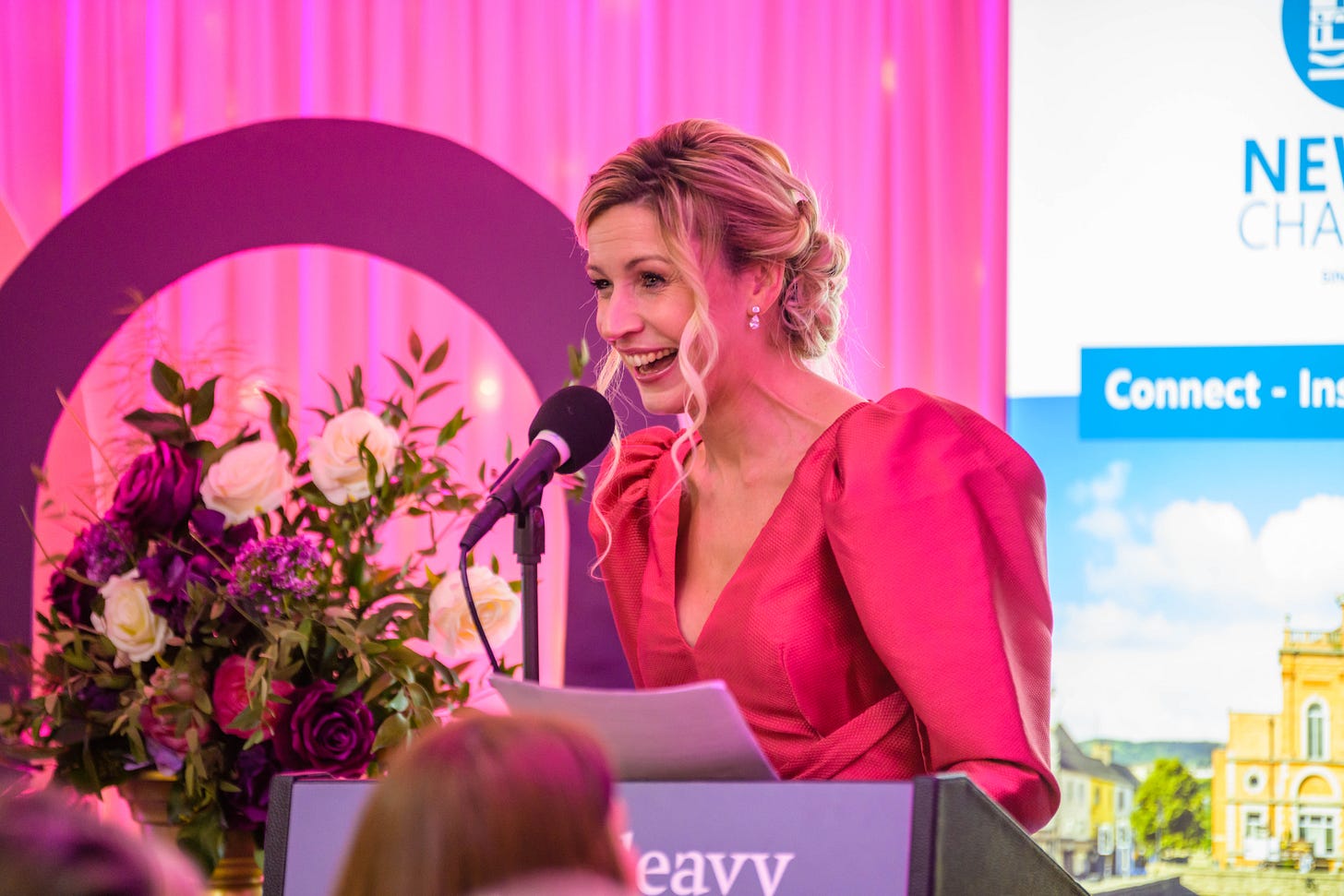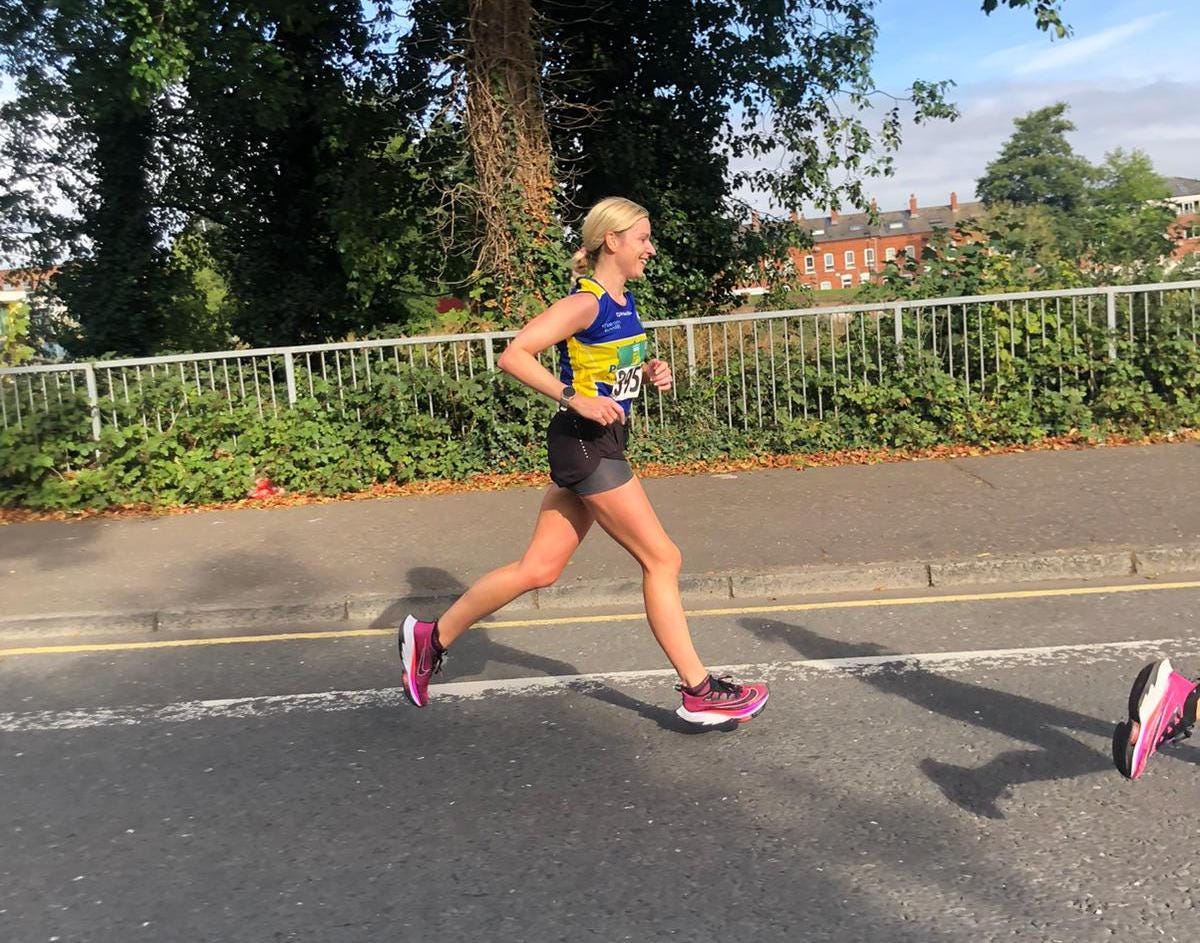'Your network is your net worth': Deborah Loughran was building a business long before she ever realised
Deborah founded King Communication in 2020 at the onset of the pandemic but contrary to what she thought at the time, she wasn't starting from scratch...
Good morning, welcome to the latest edition of Entrepreneur NI – a newsletter which drops into your inbox of a Sunday morning, showcasing how founders created some of the best businesses in Northern Ireland – big, small and everything in between. If you haven’t already subscribed, you can do so here..
Mind your own business and learn to say no! Deborah Loughran is neither abrupt or discourteous; she is the owner of one of the most successful communications companies in Northern Ireland but it’s the very fact she is great at both minding her own business and saying no (mostly) that has given her a strong foothold in the entrepreneurial world. However, there’s always room for improvement – there has to be! That’s another little slither of advice I can offer up from my conversation with Deborah this week.
King Communication began at the beginning of Covid, not in spite of the virus, but rather as a result of it. Deborah was Group Head of Communications at MJM Marine – the cruise specialists. Covid and cruise were the antipathy of each other and the job leading up the communications strategy in a company working in the cruise industry at that time was going to be a very different one indeed.
If there was ever a time for change, it was then. Deborah reluctantly left behind a role – and colleagues – she enjoyed; fortunately her now former employers remain good friends.
What Deborah, awash with doubt, wasn’t fully aware of at the time was the fact that what she had been doing over the previous 10 and more years was building up a network, which ultimately lay the foundations for what has come since.
“By being involved in the Chamber of Commerce in Newry, by getting involved in charity things, by being stuck in different clubs and activities; at the time I didn't realise but I was building a network that would come back to support me further down the line,” said Deborah.
“Before I made a final decision to leave my job and start my own business I was able to lift the phone to probably 10 of the best business people in this area and ask them if this was a good idea or not? And I got such support and encouragement from it – probably two of my first clients out of it as well.”
“Your network is your net worth,” a quote Deborah threw out that I had never heard of…
The encouragement was so much that if it hadn’t have worked out, Deborah had bagged herself the chance to walk straight into another job at a top business. She was told to put that one in her back pocket but, fortunately for her, it was a Get Out of Jail Free card that never needed to be cashed in.
Deborah spends her time helping other businesses grow and one of the ways she does that is by looking at strategy – steering them in the right direction – because that is the problem, she says, most growing companies face.
“So many of these fantastic businesses have been grown by people who have spotted a gap in the market, or who are good at something, and a business has developed around that, and they want to try and take it to the next level but are not sure how.”
That’s where Deborah comes in. She describes the role she plays as “the outsourced company director”.
Before self-employment, Deborah spent 10 years working in agencies in Belfast and she says it was “one of the best things ever happened to me because, if I only had in-house experience, I wouldn't have known how to charge for my time”.
She adds: “I wouldn't have known how important it was because there is this idea of understanding that your time is your product. A lot of small businesses fail because people don't know, or understand, the importance of being able to charge for their time.”
This is where learning to say no comes into play but it only works when you have a clear vision and strategy already in place. For Deborah, that strategy is not an eight-page document filed away, never to be read again, but a simple one page document that sits on your desk.
By referring back to this document, which contains a very clear vision and sets of objectives – time and time again – it becomes easier to say no! Learning to say no is never easy, it takes time.
“Anything outside of that strategy, it’s noise, don’t touch it. You learn to say no to things because you know clearly what you’re doing when you have a strategy,” said Deborah.
“As a business owner what would make you sit back at the end of the financial year and go, ‘Do you know what, I have delivered here on what I set out to do’, or ‘Do you know what, I've more to do’. It's so simple, but it actually really focuses the mind. I know personally how many hours I have to charge every day, and at what cost, to earn the salary I want for myself. Every single day!
“I physically know then what that looks like in a week, so I know whether I've gone under or over my target. If I look at my diary over the course of the week, or the fortnight, or the month, or the quarter – I know. It's simple because I set the number; I said this is what I want to turn over in the business in a year.”
Deborah says the same principal applies for allocating budget and time. When it falls outside that strategy, or your core objectives, learn to say no!
King Communication’s typical client base is more established businesses, those who maybe need the marketing or communications director but don't have a full time capacity for it. Deborah has pitched the company – her services – like an extension of the senior management team – that outsourced company director.
And one of the stipulations for Deborah – and it’s a big stipulation – is that “for me, I have to be comfortable making myself a cup of tea in the company location”.
“I have to be comfortable enough for anybody who I'm working with long term, comfortable enough that I go to the cupboard, or go to the kitchen and stick the kettle on for myself, because that shows that you're not a consultant, you're part of the team.”
Being one of the team is key, which is why Deborah has no major aspiration of scaling her operation – she does not want to run an agency. She has built a network of people around her who are specialists in their respective fields and who support her across various projects; there’s no desire to have people work directly for her, for now.
“Yes, it means I am limited to an extent because you only have a certain number of hours in the day, but it just gives you that ability to be part of the senior management team, and work with a small number of clients who see the value of what you’re doing.
“Without being disrespectful to the agencies, sometimes they don't get under the bonnet of a company and, with in-house, you’re too involved and get pulled into different things you shouldn’t.
“So, what I wanted to do was really be involved in the business, to be an extension of the senior management team, where you're only getting paid to deliver the core things that you've agreed you're going to deliver. You're not getting dragged into other things in the business that aren't relevant to you.”
Aside from helping other businesses, Deborah has to work on her own company too. It’s about fine-tuning her skills and there is a constant need to do so, whether she likes it or not, but it’s not about worrying what others are doing – mind your own business. For Deborah, it’s about being comfortable in her own offering; an offering she is always working to improve.
Said Deborah: “I ask myself, what are the three, four or five things that I could do, say in the next 12 months, to elevate my business? Even a tiny little step at a time that I can turn around and say, ‘Okay, yes, I am doing that’.
“One of mine is that I do some level of further learning each year because I need to keep learning. Two years ago I did a mini MBA. This year, I did a course through the Clinton Institute in Digital Disruption. I’m not off doing 10 random things; I focus on one decent course per year that will keep me fresh in the game.
“I also want to give back so I’ll mentor or support at least one student a year. You’ll know and understand your capacity with clear objectives, so you know what you can and cannot fit in. While it’ll be hard at the start, you’ll get better with it over time.”
While Deborah sounds like she has it all sorted out, there are of course challenges for her; work-life balance and being able to keep her work away from home is difficult to get right at times, like most business owners.
With two young daughters, aged seven and nine, life can be pretty hectic. That’s where being strategic, organised and keeping a robust diary come in very handy.
On top of that, Deborah is a keen runner, it’s how she unwinds. In 2022 she completed four marathons but that, she admits, was too much. This year she hasn’t clocked up any marathons for that simple reason, but she has her eyes set on the London Marathon later this year. Before that it’s the Belfast Half Marathon. It’s a case of healthy body and healthy mind.
The world of self-employment, as full-on as it can be, suits Deborah and her family’s lifestyle.
“My husband and I are full time taxi drivers for our two daughters. The football, swimming, dancing all gets marked in my diary and fortunately working for myself allows me to switch routines. That flexibility allows me to be there for the children which is important at their age.
“I don’t buy the excuse ‘I don’t have time’. My husband and I have to make it work. We co-ordinate with each other but of course, we couldn't do what we do without the help of our parents because we rely on them so much. So I do understand that there are constraints on people's lives, but it’s so important to make a bit of time for yourself. Running is how I do it and I make sure I don’t run with music, podcasts or anything – it’s my free headspace time.”
And time to switch off is vital because “self-employment is certainly not the easy option, certainly not”.
“You have so much to think about. You do need to be on your A-game at all times and I do struggle a bit with that at times. I find that it can be a lot of pressure but the minute it stops becoming enjoyable you just move on and do something else.
“But for now I am really enjoying it and three years into it, it suits my lifestyle, it suits the family. Having a supportive and loving family just makes such a difference when you’re running a business because, at the end of the day, they are your biggest asset and your biggest allies.”











